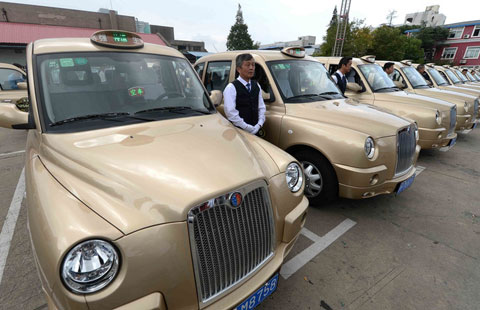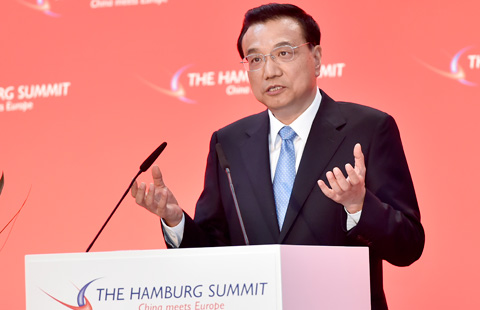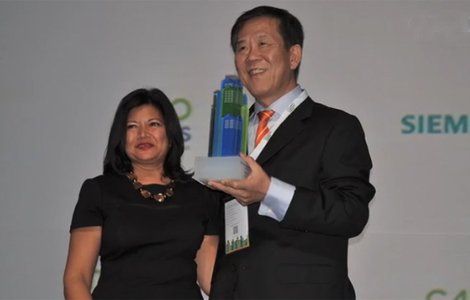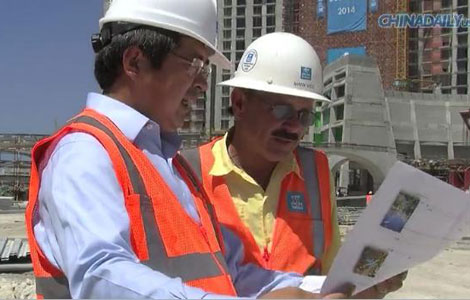Showing what makes a great Chinese entrepreneur
Updated: 2014-10-13 07:46
By Bai Ping(China Daily USA)
|
|||||||||
If the rumored biopic about Jack Ma, the richest man in China, becomes reality, I hope it includes the skirmish between him and a bunch of manhole cover thieves in his hometown, which epitomizes some essential traits of any entrepreneur who has made it big in the country.
On a summer night in 1995, when Ma was still a struggling Internet entrepreneur who worried about his rent in Hangzhou, he saw five or six burly men levering up a manhole cover on the road.
Ma decided to stop them despite his slight figure. He rode a bicycle around the crime scene several times looking for help, but nobody was willing to join him. He finally confronted the men and shouted: "You put it back!"
But Ma was not attacked. Instead, he became an instant hero, because the pilfering was staged by a television station to capture local people's reactions to thefts caught on hidden cameras. Ma was the only one who stood up to the thieves that night.
Besides good citizenry, audiences also marveled at Ma's determination to achieve his goal once he had set it. The young man with rumpled hair also seemed to have exceptional street smarts. He amused viewers after he confessed that when he confronted the men, he also had an exit strategy in place: he had one foot on the pedal so he could flee if one of the men lunged at him.
Ma's first TV appearance which has resurfaced on the Internet recently, has also corroborated with my own observation that besides having other important attributes, only people with extraordinary vigor, persistence and savvy to solve real-life problems and take calculated risks can succeed in the Chinese environment that brims with both opportunities and challenges.
At about the same time that Ma was tinkering with his online yellow pages that were to become the global giant Alibaba group, I had met several cash-strapped Internet entrepreneurs who were bent on finding free content for their portals.
To us journalists, their proposals sounded absurd and pathetic. They kept visiting newsrooms everywhere, pleading with editors to allow them to lift their content for free. In return, the newspapers would share in the ad revenues if there were any on their little-known sites.
While we said no thanks, other news outlets thought it would not hurt to let the websites post their stories.
It had never occurred to them that one day they would have to beg to have their headlines posted on the homepages of these sites to reach a broader audience.
The Internet startups soon attracted more and more eyeballs until they became too big to contain.
Newspaper alliances targeting such commercial sites were formed but collapsed time and again, because Internet entrepreneurs know how to find and exploit cracks in some newspapers that want to outmaneuver their rivals, even if that means free or dirt cheap content provided to commercial sites, and to kill their own online versions.
I've heard colleagues dissecting the reasons for Ma's rise to fame, after his company completed the largest initial public offering in history in New York last month. Most are still bewildered by the success and wealth of this man who sat twice for the national college entrance exam and only ended up in a third-tier local school. Ma has admitted modestly that if he and his people can be successful, 80 percent of Chinese can be successful too.
Some said he was clever; others said he was driven by poverty; and there were those who said he was lucky. Probably all of us have wondered: why him, and not me?
Bu after we watched the video of Ma and the "thieves", we all agreed that this man has qualities that have made his success inevitable.
Contact the author at dr.baiping@hotmail.com
(China Daily USA 10/13/2014 page9)

 School honored by governor
School honored by governor
 Joint Scorpion venture soars in ratings
Joint Scorpion venture soars in ratings
 Li opens doors on trade, energy
Li opens doors on trade, energy
 Shanghai launches old-style cabs for special needs
Shanghai launches old-style cabs for special needs
 Cold wave brings first snowfall this autumn to Gansu
Cold wave brings first snowfall this autumn to Gansu
 27 Chinese hostages freed in Cameroon
27 Chinese hostages freed in Cameroon
 Premier Li begins his Russia visit
Premier Li begins his Russia visit
 Li says focus is on long-term growth
Li says focus is on long-term growth
Most Viewed
Editor's Picks

|

|

|

|

|

|
Today's Top News
Joint Scorpion venture soars in ratings
School honored by governor
China's slowing growth will impact LatAm
Li opens doors on trade, energy
China, Brazil relations grow stronger
Texas health care worker tests positive for Ebola
HK chief says reform must not abandon law
1,552 new dengue cases reported in Guangdong
US Weekly

|

|








